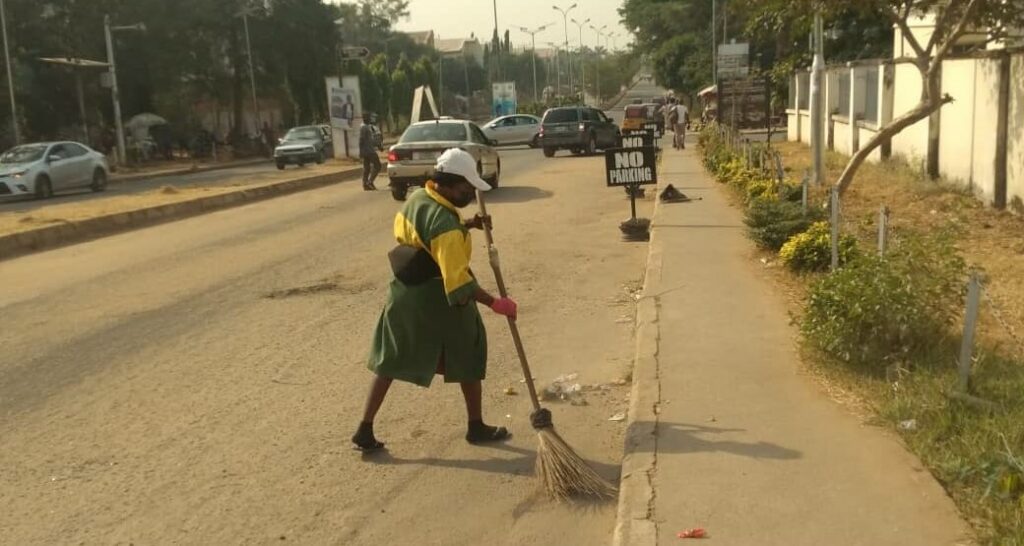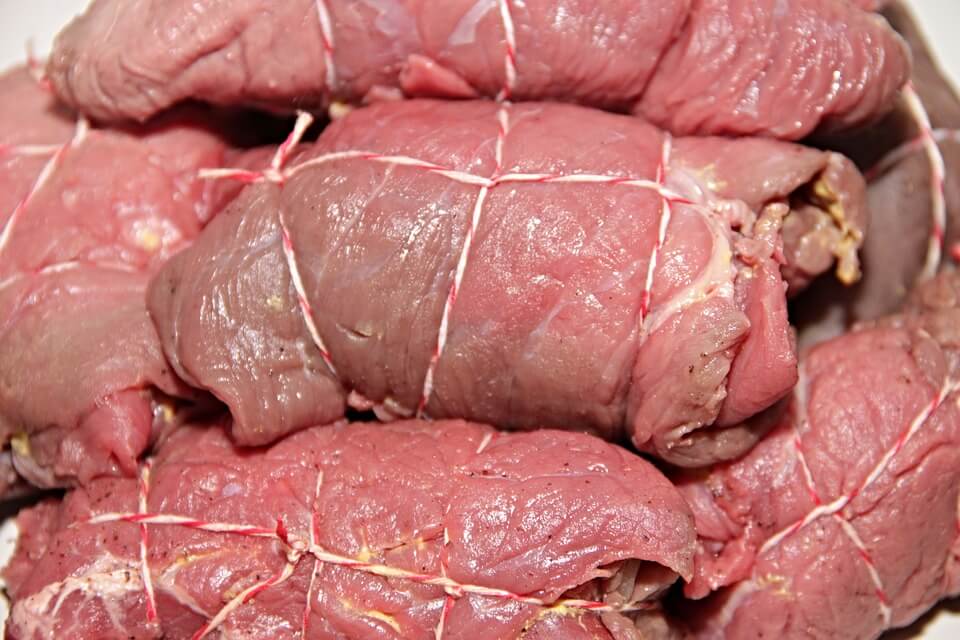Some low-income earners in Abuja, Nigeria’s federal capital, said harsh economic conditions have compelled them to abandon meat and seek alternative ways to make their food tasty.
Speaking in separate interviews with THE WHISTLER, the low-income earners said they resorted to using more seasoning cubes and other ingredients as substitute for meat due to high prices of food, especially meat.
Advertisement
Some said they sometimes eat egg, beans or vegetables as substitute for meat so they don’t completely miss out on protein.
The category of people who spoke to our correspondent are mostly women without basic education who do menial jobs to support their families.
Some are married to petty traders who struggle to cater to their families’ needs or men who fail to take responsibility for the upkeep of their wives and children.
They are on the receiving end of the rising costs of food in Nigeria that have significantly affected the living standards of the ordinary citizens.
Advertisement
Nutritionists recommend adequate consumption of nutrients such as vitamins, minerals, protein, fats, water, and carbohydrates for the body to function properly bu the high cost of meat has prevented these people from incorporating this dietary source in their nutrition.
Data sourced from the National Bureau of Statistics (NBS) website showed that the average price of beef rose from N1,812.03 in November 2021 to N2,337.46 as of November 2022. However, a market survey by our correspondent revealed that one kilogram of beef was sold for N3,000 at the Dutse Market, Abuja, in December 2023.
Emmanuel Grace, a street sweeper in Gwarinpa and mother of five, said she is unable to tend to her children’s nutritional needs because she earns a meager N22,000 which less than the country’s minimum wage (N30,000).

“I use Maggi and plenty of pepper so they can eat it and drink plenty of water,” she said when our correspondent asked how she cooks when the family can’t afford meat or fish.
Advertisement
“I always come here from 6 am to work till 2 pm, and in the evening I buy eggs and sell them because I can’t feed my children with what they pay me here.
“They pay us that sweep Gwarinpa N22,000 but the people at Dei-Dei Area are paid N25,000. They don’t pay us up to minimum wage,” she said.
Grace, who previously worked with a waste disposal company in Abuja, said she has been sweeping the streets for more than four years because she’s been unable to secure a better job.
“The money is not even enough. Before the month ends, I’m already in debt. I do this work Monday to Saturday and I come from Zuba. I have five children and my husband does a menial job, in some cases, doesn’t get paid,” she explained.
Another resident who gave her name as Blessing, said she earns below the minimum wage at a traveling agency where she works as a cleaner.
She similarly lamented the high cost of feeding her family.
Advertisement
The mother of two said, “the country is hard, and feeding the kids is not easy. We just manage and eat whatever we see. Things are very expensive now. There are times that when I visit the market, I would want to go back home without buying anything but would consider that it will be a waste of transport.
“At times when I can’t afford to buy either meat or fish, I cook with crayfish and we manage it. My husband is just a petty trader and earns little in his business.
“Government should help us even if is N20, 000 monthly (support) to help the poor masses feed their children, as this will help reduce.”
On her part, Loveth Ngwo, a single mother who works as a casual staff at the Lugbe office of the Abuja Electricity Distribution Company (AEDC), said she sleeps on an empty stomach at times to ensure her child feeds.
“The cost of living in Abuja is high, as a low-income earner, I can’t even explain the pain I go through having to feed myself and my child.
“You will make list at home and on getting to the market you will rewrite your list. Things keep increasing without coming down. With my N30,000 salary, I always try to feed my son well to look healthy.
“Most times I go for fish instead of meat, but since fish became expensive too, I substitute with egg depending on what I’m cooking. I give him beans, vegetables, and other proteinous food. I go to bed hungry at times just to have my son eat.
“I pray that the incoming government will be one that will care about the poor masses and make the country better for everyone.”
The minimum wage in Africa’s most populous nation is N30,000, but inflation has eroded the gains of the increment which took effect in 2019.
The National Bureau of Statistics said inflation is at 21.34 per cent in December 2022, a deceleration from the 21.47 per cent held in November 2022.
Food inflation is currently at 23.75 per cent, down from the 24.13 per cent held in November 2022.
But experts and low-income earning citizens are of the opinion that the decline in inflation does not reflect in their livelihood.
A report released by the NBS in November 2022 said over 133 million Nigerians live in multi-dimensional poverty and more are projected to fall into that class.
The minimum wage in Africa’s most populous nation was increased to N30,000 in 2019 but inflation has eroded the gains of the increment.
The NBS put inflation at 21.34 per cent as of December 2022, a deceleration from the 21.47 per cent recorded in November 2022.
Food inflation is currently at 23.75 per cent, down from the 24.13 per cent held in November 2022.
But experts and low-income earning citizens are of the opinion that the decline in inflation does not reflect in their livelihood.



